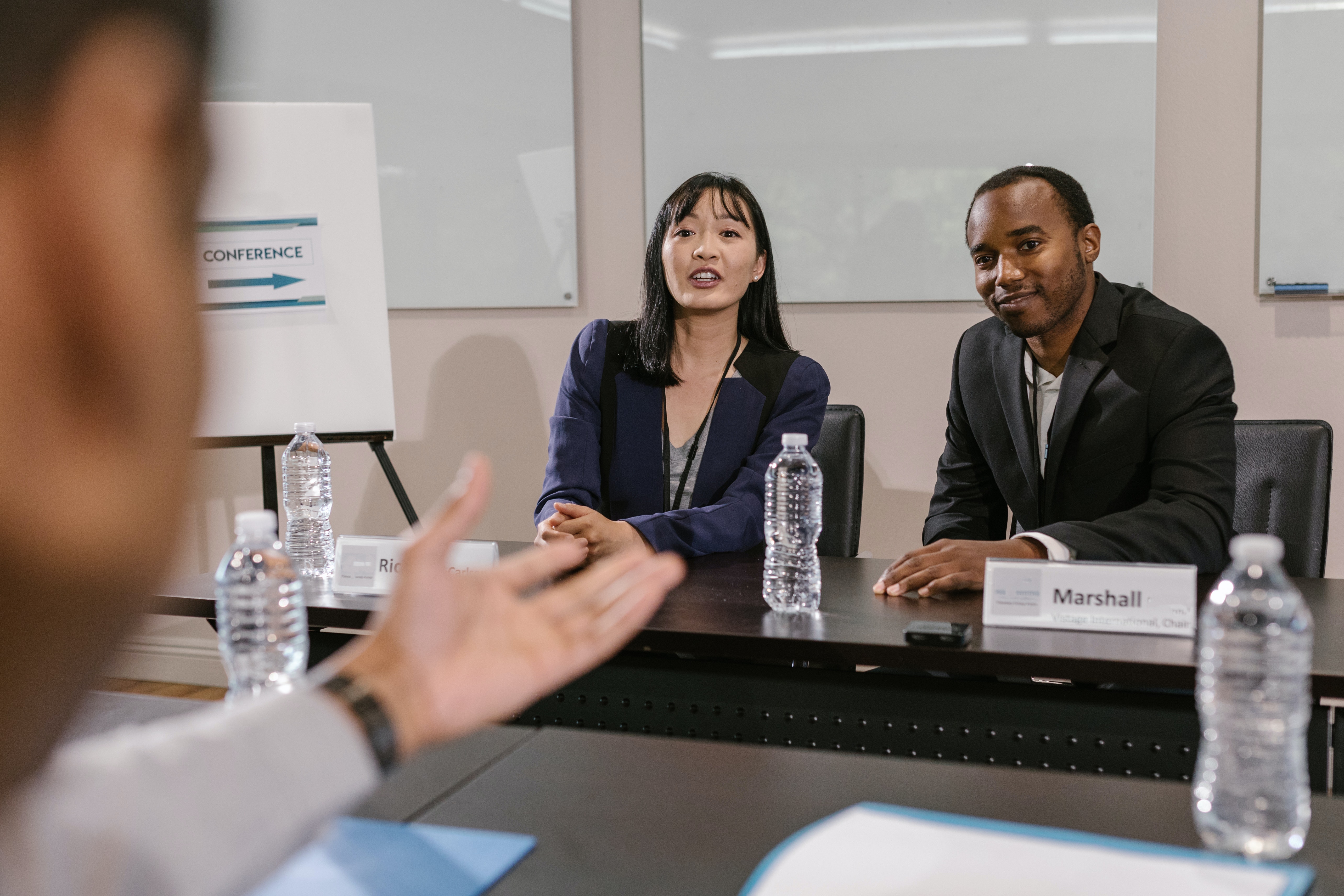
There’s nothing quite like making it to the final round of an interview.
On one hand, you’re feeling proud you’ve made it so far.
On the other hand, you’re most likely anxious.
The last interview is your final shot. This final chance to demonstrate you are right for this role.
Whatever you say and do during this final interview, it’s going to leave an impression.
You already know first impressions matter, but during an interview process, your last impression is equally, if not more critical.
Reason being, is that your last impression becomes your lasting impression. Interviewers remember candidates based on their last memory of them.
What to expect in your final interview?
As such, when leaving your lasting impression, some key things to expect are:
You will meet your direct report
The hiring decision is about to be made. As such, senior management, such as HR managers, Department Managers and even the CEO may be involved at this point. During your final interview, one of the interviewers will most likely will be your direct report.
A test of character
At this point, the company is fairly confident you can perform the job. Otherwise, you wouldn’t have progressed to this stage. They already know you have the experience and skills. Can you, however use these resources to become a productive member of their staff?
Also, are you cooperative, adaptable, manage conflict well, stress-resilient, possess integrity and emotional intelligence? Being qualified is essential. Now, they need to know if you can withstand the daily demands of the job and work collaboratively with their team.
Situational type questions
Your final interview questions are often situational. The interviewer may describe a regular work problem, to assess how you would process it and find a suitable solution.
Work-problem questions typically include:
- “How would you handle an irate customer in front of you”
- If you came across a coworker, who is also your friend stealing company property, how would you respond”?
- If one of our competitors offers you a lucrative, job opportunity, would you accept? Why?
In the final interview, the interviewer presents you with real-life dilemmas to evaluate your thinking process, problem-solving ability and the action you would take.
Salary negotiations
You can also expect final interviewers to discuss salary with you. Other compensation and benefits such as commission, travel allowances, access to a company’s vehicle or cell phone, paid leave and vacation may also be discussed.
How to prepare for a final interview?
Know your values
You should be keenly aware on your values, positions on certain subject matters, key beliefs and convictions. These will be instrumental when answering situational questions. It also allows interviewers to determine if your character suits the job.
Perform a company review
Your company research ought to be growing at each phase of the interview process. The basic information you memorised on their website might suffice within the first round. However, by the final round, interviewers expect a more detailed and in-depth familiarity with their organisation.
As such, before your final interview, browse the latest company news, industry updates or market information. Know what the company is presently doing or facing. Include these findings within your answers to come across informed, engaged and be seen as a perfect fit for the company.
Remain confident yet humble
The last thing you need, especially at this stage is to lose a good opportunity because you came across arrogant or cocky. You are still being interviewed and if anything, the competition has gotten more intense. All shortlisted candidates at this point are well-liked and qualified. Remain humble as there’s still work to do.
Speak long-term
Speak as though you’re confident in your performance ability and you intend to grow and develop in this position. Avoid using phrases such as “for now” or “until better comes along”. Instead, speak as though you’re invested in this company and the position is truly one you desire.
Remember your past interviews
Recall stories or key pieces of information you’ve shared in past interviews. Most likely, you will be asked to build or elaborate on them. Ensure that what was previously said aligns with what you say in your final round.
Be reference ready
Have your list of references, recommendation letters, copies of your resume and qualifications on you during the interview. It saves both parties time and shows proactivity on your part.
Tips for a final interview
- Dress your best. You want your lasting impression to be the embodiment of professionalism. Jackets, shirt/bouse, ties, dress pants, formal shoes, neat appearance and perfect hygiene are essential.
- Maintain your energy. Your potential employer will be expecting consistency. Maintain the same energy and enthusiasm from previous interviews for a flawless performance.
- Ask questions. This helps build engagement, demonstrates interest and makes for a more enjoyable interview.
- Have a salary figure in mind. The employer will be keen to know your salary expectations. Evaluate a reasonable salary amount by researching similar jobs by similar companies in your country and finalise a logical figure.
- Don’t regurgitate the same answers from previous interviews. Even if the questions are similar and the answers the same, build on them. Go into more detail, provide more examples and go deeper into what was previously discussed.
- End on a high note. Your lasting impression must end well with a story or example of what value you offer, possibly a trait or quality that’s hard to find in other candidates.
- Thank them. End with a firm handshake and don’t forget your follow-up thank you note, expressing your gratitude for the opportunity and the pleasure to be considered to join their team.
- Follow up. A hiring decision can often be a big decision. Give the company some times and reach out within 3-5 business days for a follow up.
